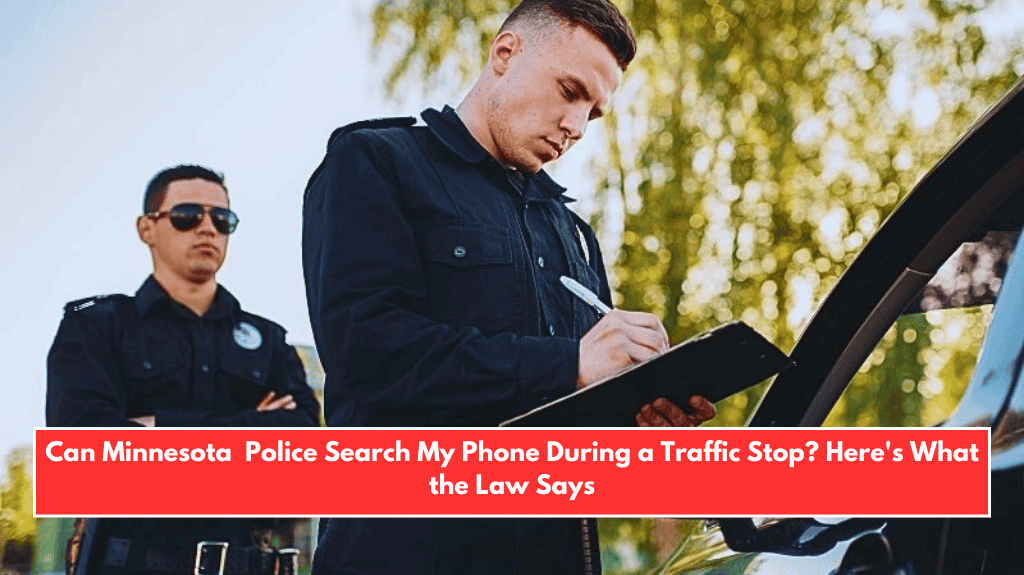In Minnesota, the law regarding police searches of phones during traffic stops is governed by the Fourth Amendment of the U.S. Constitution, which protects individuals from unreasonable searches and seizures. Here’s a breakdown of what the law says and how it applies to your situation:
Legal Basis for Searches
Fourth Amendment Protections: The Fourth Amendment prohibits unreasonable searches and seizures. This means that police generally need a warrant or probable cause to search your phone.
Exceptions to the Warrant Requirement: There are exceptions where police can search without a warrant, such as if they have probable cause or if you give consent. However, these exceptions are limited and must be justified.
How Police Can Search Your Phone
Consent: Police can ask for your permission to search your phone. You have the right to refuse consent, and it’s advisable to do so unless you have consulted with a lawyer.
Search Warrant: If police obtain a search warrant, they can compel you to turn over your phone for examination. In some cases, if your phone is locked with a fingerprint, you may be required to unlock it if the police have a warrant.
What Happens During a Traffic Stop
Reason for the Stop: Police must have a valid reason for stopping you, such as a traffic violation or suspicion of a crime.
Request to Search: If an officer asks to search your phone during a stop, you are not legally required to comply unless they have a warrant or probable cause.
Recording Interactions: You have the right to record interactions with police, which can be useful in documenting any potential rights violations.
Protecting Your Rights
Refusing Consent: It’s crucial to politely but firmly decline any request to search your phone unless the officer has a warrant or probable cause.
Seeking Legal Advice: If you’re unsure about your rights or if you believe your rights have been violated, consult with a lawyer.
In summary, Minnesota police cannot search your phone during a traffic stop without your consent, a search warrant, or probable cause. Understanding your rights under the Fourth Amendment is key to protecting yourself during such encounters. Always be aware of your legal protections and seek advice if you feel your rights have been compromised.
Additional Considerations
Texting and Driving: While texting and driving is illegal in Minnesota, proving this offense often requires eyewitness testimony or admission from the driver.
Phone Records: Police may obtain phone records with a search warrant, but this typically applies to more serious offenses.
Minnesota Supreme Court Rulings: The court has ruled that compelling a suspect to unlock their phone with a fingerprint does not violate the Fifth Amendment, but this requires a warrant.
By being informed about these legal nuances, you can better navigate interactions with law enforcement and ensure that your rights are respected.
Sources:
- https://arrestedmn.com/blog/things-to-know-about-search-and-seizure-in-minnesota/
- https://www.eraserlawfirm.com/what-are-your-rights-during-a-police-stop-in-minnesota/
- https://www.superlawyers.com/resources/criminal-defense/minnesota/police-can-search-your-phone-in-minnesota/
- https://www.mncrimdefense.com/can-the-police-make-you-unlock-your-phone
- https://bkdefense.com/can-the-police-search-my-phone-if-they-think-i-am-texting-and-driving.html




















